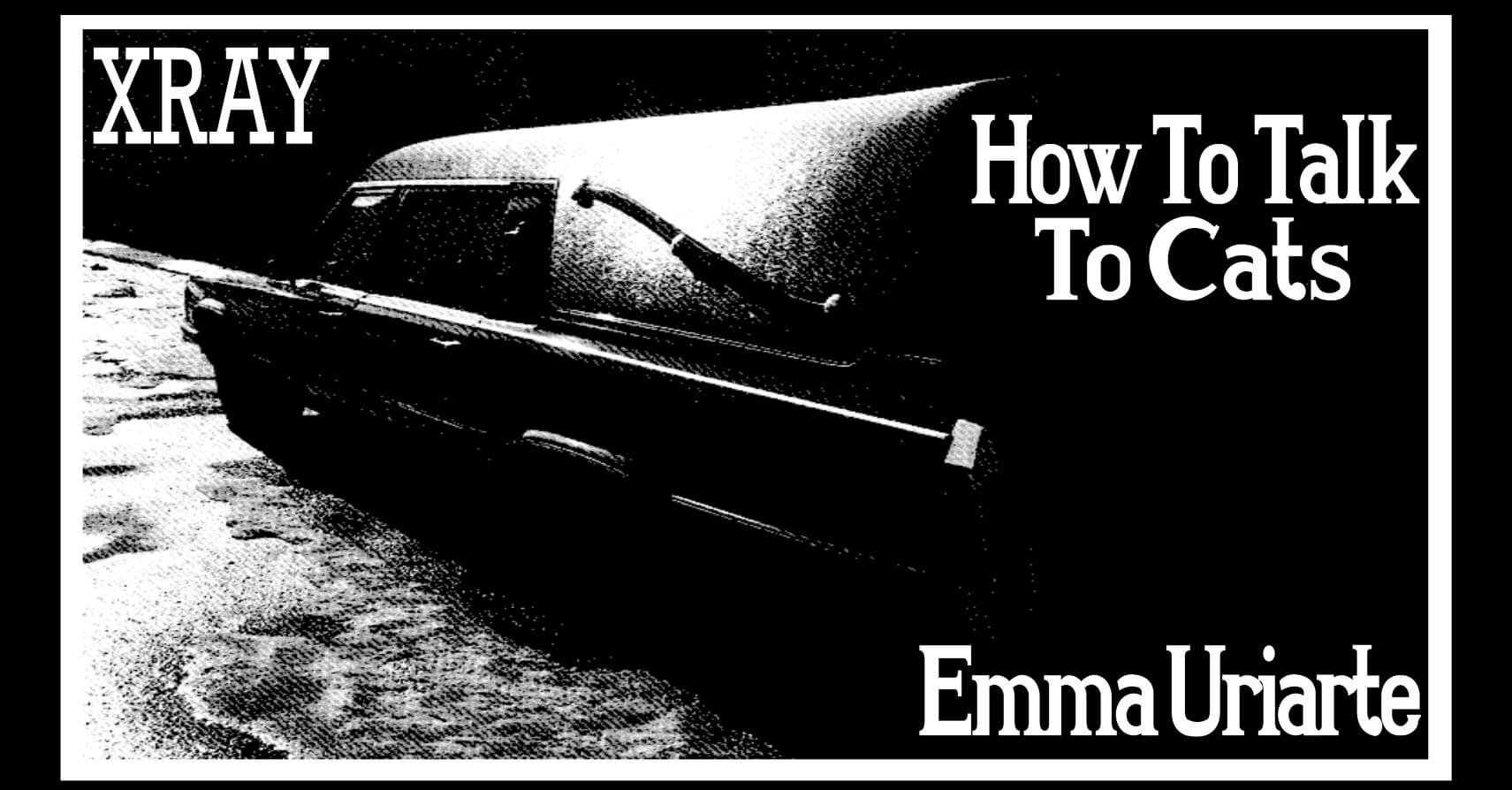Lie in bed and listen to the cats outside your window. Yowling. Hissing. Snarling and spitting. Look at the clock that reads 3:17 am. Try to remember when they first decided your driveway would be their new alley. A month, maybe, after you moved in. The same week you stained the mattress. Tell yourself you should be used to it.
Open the blinds and then the window, autumn biting with sharp, tiny teeth. Shout, beat it fuckers.
Watch them pause. Their eyes shine silver-green in the darkness.
See them around sometimes, even if you can’t be sure they’re the exact ones from the driveway. The neighborhood has many cats: big ones, skittish ones, ones that sit in living room windows like sentinels. Walk to work on purpose, just to see them. Pause in front of their windows. Look each one in the eye. Try to tell them something, but don’t speak.
Talk to Tammy from work. She’ll suggest cat treats.
Watch them wander through your yard in the morning and evening, and in the middle of the day, when you’re not at work. Listen to fragile leaves cracking under paws. Watch television on mute and eat dinner with the window open, waiting to hear their faint crunch.
Call your mother. She’ll ask: Are you eating well?
And: Do you need me to visit?
And: When will you see the doctor?
Respond in monosyllables.
See one in the yard. Come out with the bag of treats you picked up at Petco on the way home from work. Shake the bag. Watch the cat glare, unimpressed. Mumble, fuck you, too.
Find a dead mouse in the yard. Realize it only looks that way at first: lying on its side in the overgrown grass. Bend down and see its ribcage barely expand, the quiver of its pale nose. Remember reading somewhere that at fourteen weeks the human fetus is the size of a mouse.
Stick your face close, nose inches away. Smell the dirt and grass and something kind-of-musty-sweet. Recoil when it opens its eyes and tries to hobble away, listing pitifully to the left. Say, what happened to you? Do not recognize your voice, all sugar. What happened?
Find an old shoe box. In the absence of newspaper, dump in a handful of cotton balls your mother bought you years ago because she said they were useful. They are, in this instance. Pick up the mouse with bare hands, feel it shiver at your touch. Put it in the box. Go back to Petco and buy some pellets at the clerk’s recommendation. Fill a Gatorade cap with water. Stick the pellets and water in the box, leave the lid open an inch.
Fall asleep. Wake up to darkness, the sound of tiny nails on cardboard.
Find the mouse, dead for real this time, before work. Look at its stillness in the box and know. Pick it up, and it is cold, fur matted on one side. Have the urge to lick it, to smooth out the fur with your tongue. Imagine the roughness of it, a taste like damp earth. Consider burying it. Look at the time. Throw it in the yard instead, back where you found it. See the way the grass you still haven’t mowed consumes it.
Every cat you pass is a murderer.
Tammy will say you should have thrown it in the garden. It’ll attract raccoons, or worse.
Ask: what’s worse?
Well, she’ll say, there are all kinds of creatures.
Dream of a mouse in your box, mangled and covered in red slime. Eyes closed like a newborn. In your dream, a raccoon gets to it , tearing the box to shreds. Cotton balls litter the floor like snow.
Stifle a sob. Try and fail to fall back asleep, because the cats are in the driveway again. Consider calling your mother. Instead, pull up the blinds slowly, slowly open the window, and whisper: Psst! Hey, you. What happened?

